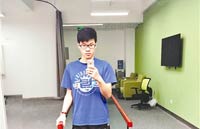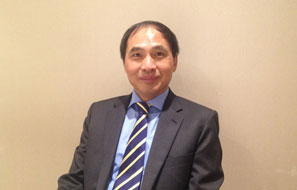Top legislature ends bimonthly session
(Xinhua) Updated: 2012-12-29 08:53BEIJING - China's top legislature on Friday concluded a bimonthly session in which revised laws were adopted and the country's new police chief was appointed.
Members of the National People's Congress (NPC) Standing Committee voted to revise the Law on the Protection of the Rights and Interests of the Elderly, the Law on Funds for Investment in Securities as well as the Agriculture Law.
Legislators also approved an amendment to the Labor Contract Law.
Guo Shengkun, 58, who previously served as Communist Party chief of south China's Guangxi Zhuang Autonomous Region, was appointed minister of public security, replacing Meng Jianzhu.
All the aforementioned revisions were endorsed and publicized by presidential orders signed by President Hu Jintao.
After debating over the course of the five-day session, 151 legislators approved a draft decision on strengthening the protection of online information, with a vote of 145 in favor, one against and five abstentions.
At the closing meeting of the session presided over by NPC Standing Committee Chairman Wu Bangguo, legislators approved a draft decision on a pilot reform program in south China's Guangdong Province to limit administrative power by suspending or adjusting a list of governmental examination and approval items.
They also approved the composition of an electoral committee of the People's Liberation Army (PLA), which will choose the new deputies from the PLA to the 12th NPC.
Fan Changlong, vice chairman of the Central Military Commission, acts as director of the committee. Xu Qiliang and Zhang Yang are deputy directors.
After finishing all voting procedures, Wu said at the meeting the decision on strengthening the protection of online information will help safeguard personal and corporate electronic information.
The decision, which gives the government necessary supervision means with a system for Internet users' ID policy, was approved after listening to a variety of opinions and analyses of foreign legislation, Wu said.
It will help maintain political stability and national security, as well as promote social harmony and stability, Wu added.
Wu said the amendment to the Labor Contract Law underlined the point that workers hired through labor contracting agents should receive the same treatment as direct recruits.
The amendment also stipulates that employers should mostly hire workers directly, not via labor contractors, and they should also strictly control the number of "leased workers."
Legislators also passed a decision to convene the first annual session of the 12th NPC on March 5, 2013.
Wu said there is a little more than two months toward the first annual session of the 12th NPC, and elections for deputies to the 12th NPC should be conducted smoothly and preparations for the session should be made carefully.
After the closing meeting, Wu presided over a special lecture on China's political system as stipulated by the country's Constitution.
Qiao Xiaoyang, vice chairman of the NPC's Law Committee, delivered a speech on the character and advantages of China's political system.
- China aims for broad tech progress
- Love outshines Olympics
- Subversion of State: 'There's no place for outlaws'
- Lawyers should abide by law: Expert
- China, Russia eye crossings on border island
- Desert sands working magic on aches, pains
- China convicts four for state power subversion
- China launches first mobile telecom satellite
- Regulation targets root of terrorism
- Activist accused of subversion pleads guilty










